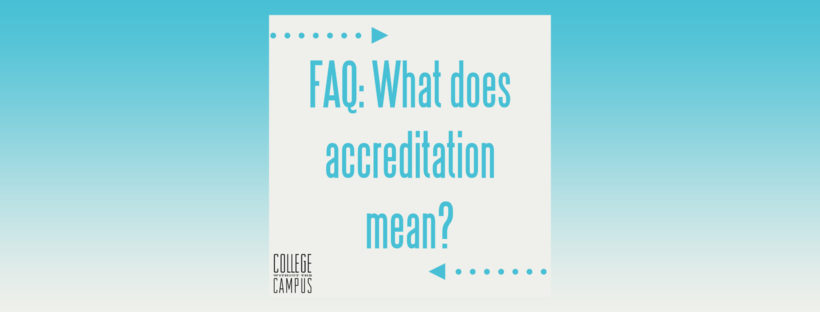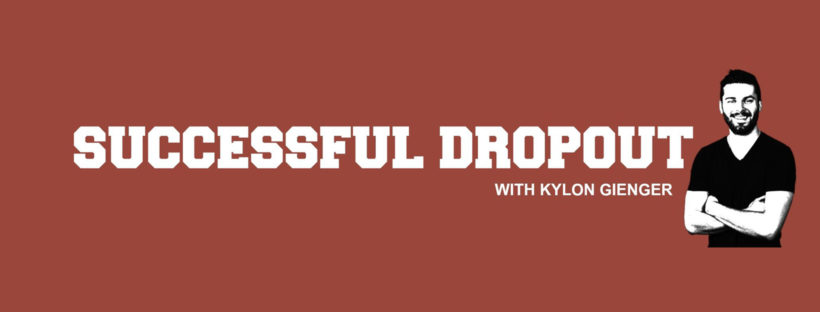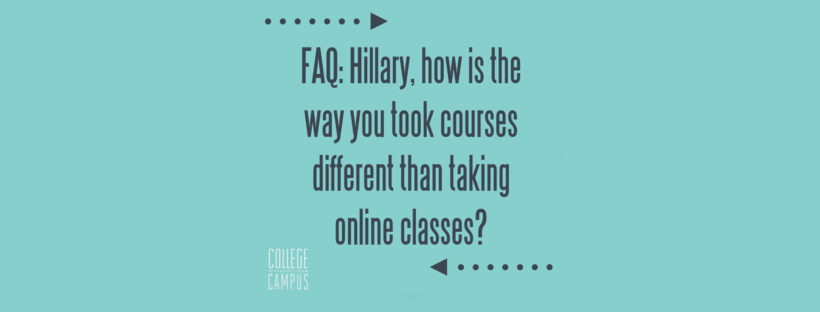Q: What does accreditation mean?
A: Dictionary.com says accredit means “to certify (a school, college, or the like) as meeting all formal official requirements of academic excellence, curriculum, facilities, etc.”[1]
Accreditation is one way to gauge a college’s legitimacy. The accreditation process begins when an organization creates a list of requirements that schools must meet to be accredited. When schools apply to be accredited and pass the requirements, they can publicly announce that they are accredited by the organization. Students can use this information when comparing schools, and employers can reference a school’s accreditation to substantiate the education of a graduate.
This isn’t to say that all schools need accreditation. Some technical or religious schools opt to show their legitimacy through industry recognition or religious affiliation.
However, schools should be able to show in detail what a student will be learning and what recognition students will receive once they have completed a program. Taking a measure of precaution is important because fake accreditation does exist. False accreditors will “accredit” diploma mills, so it’s a good idea to verify both the school and the accrediting organization. If you are concerned about a school’s accreditation, check for telltale signs.
For students who plan to attend more than one school and transfer credits, accreditation is critical to ensuring that one school recognizes the credits earned at another. Often, colleges will list their accreditation and transfer policies online. These resources can help students as they plan courses to take and transfer their credit.
For more information about accreditation, see Chapter 9: Accreditation in College Without the Campus.
[1] accreditation. Dictionary.com, Dictionary.com Unabridged, Random House, Inc. http://www.dictionary.com/browse/accredit.
![]()



